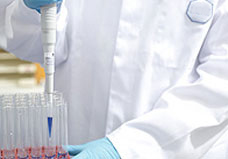| |
 |
|
|
|
|
|
|
Immunisations |
|
|
What Is Immunisations?
Immunisation protects children (and adults) against harmful
infections before they come into contact with them in the
community.
Immunisation uses the body’s natural defence mechanism - the
immune response - to build resistance to specific infections. Nine
diseases can be prevented by routine childhood immunisation -
diphtheria, tetanus, whooping cough, poliomyelitis (polio),
measles, mumps, rubella, Haemophilus influenzae type b (Hib) and
hepatitis B. All of these diseases can cause serious complications
and sometimes death.
Immunisation is given as an injection or, in the case of polio
vaccine, taken as drops by mouth. Immunisation helps children stay
healthy by preventing serious infections.
What is
in vaccines?
Some vaccines contain a very small dose of a live, but weakened
form of a virus. Some vaccines contain a very small dose of killed
bacteria or small parts of bacteria, and other vaccines contain a
small dose of a modified toxin produced by bacteria. Vaccines may
also contain either a small amount of preservative or a small
amount of an antibiotic to preserve the vaccine. Some vaccines may
also contain a small amount of an aluminium salt which helps
produce a better immune response.
Why do children get so many immunisations?
A number of immunisations are required in the first few years of a
child’s life to protect the childagainst the most serious
infections of childhood. The immune system in young children does
not work as well as the immune system in older children and
adults, because it is still immature. Therefore more doses of the
vaccine are needed. In the first months of life, a baby is
protected from most infections by antibodies from her or his
mother which are transferred to the baby during pregnancy. When
these antibodies wear off, the baby is at risk of serious
infections and so the first immunisations are given before these
antibodies have gone.
What are the side effects of immunisation?
Common side effects of immunisation are redness and soreness at
the site of injections and mild fever. While these symptoms may
concern you and upset your child at the time, the benefit of
immunisation is protection from the disease. Paracetamol might be
required to help ease the fever and soreness. For more
information, refer to Common side effects of immunisation and what
to do about them. Other side effects are very rare but if they do
occur, a doctor should be consulted immediately.
Why should I have my child immunised?
There are two reasons for immunising :
1.Immunisation is the safest and most effective way of giving
protection against the disease. After immunisation, your child is
far less likely to catch the disease if there are cases in the
community. The benefit of protection against the disease far
outweighs the very small risks of immunisation.
2.If enough people in the community are immunised, the infection
can no longer be spread from person to person and the disease dies
out altogether. This is how smallpox was eliminated from the
world, and polio has disappeared from many countries.
|
|
|
|
Immunisations - treatment of Immunisations,
Immunisations types, Disease medicines, Immunisations symptoms,
Immunisations and Disease symptoms, Immunisations symptoms Disease and
diagnosis, Symptoms and Solutions, Signs and Symptoms, type of Immunisations,
cause common, common Immunisations, Immunisations List, causes list,
Infectious Immunisations, Causes, Diseases , Types, Prevention, Treatment
and Facts, Immunisations information, Immunisations: Definition,
Immunisations names, medical Immunisations, medical Immunisations and
disorders, cell Immunisations, Immunisations Worldwide, Immunisations
Research, Immunisations Control, Immunisations Center, Digestive
Immunisations Week, Information about Immunisations, causes of different
Immunisations, Immunisations Articles, Immunisations and conditions, Health
and Immunisations, Immunisations Patients, Immunisations and Sciences,
causes of alzheimer's Immunisations, Immunisations causes, alternative
medicine heart Immunisations, body ailments, Immunisations medicines,
medical antiques, type of blood Immunisations |
|
|






